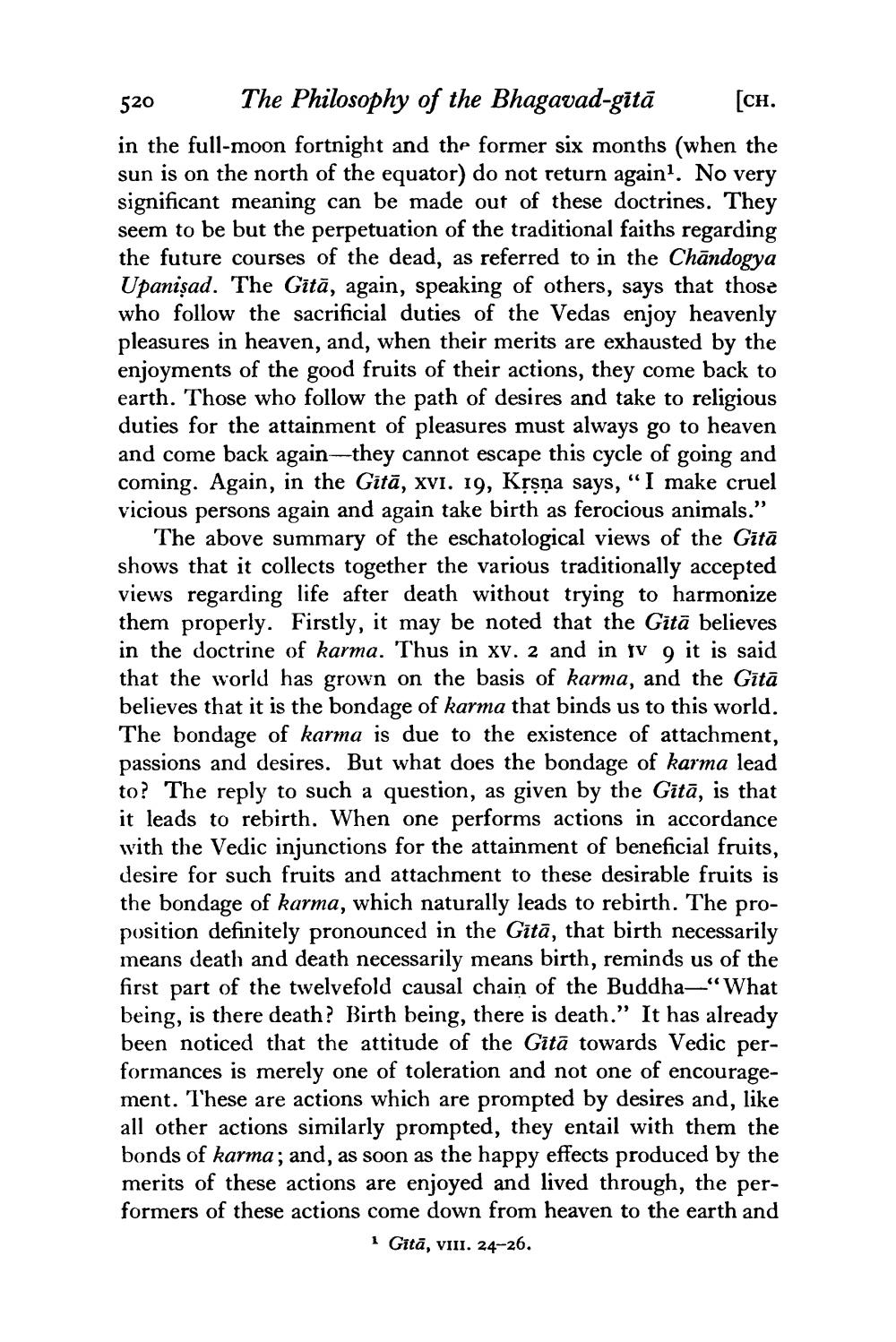________________
520
The Philosophy of the Bhagavad-gitā
[CH.
in the full-moon fortnight and the former six months (when the sun is on the north of the equator) do not return again1. No very significant meaning can be made out of these doctrines. They seem to be but the perpetuation of the traditional faiths regarding the future courses of the dead, as referred to in the Chandogya Upanisad. The Gītā, again, speaking of others, says that those who follow the sacrificial duties of the Vedas enjoy heavenly pleasures in heaven, and, when their merits are exhausted by the enjoyments of the good fruits of their actions, they come back to earth. Those who follow the path of desires and take to religious duties for the attainment of pleasures must always go to heaven and come back again-they cannot escape this cycle of going and coming. Again, in the Gitā, XVI. 19, Kṛṣṇa says, "I make cruel vicious persons again and again take birth as ferocious animals."
The above summary of the eschatological views of the Gitā shows that it collects together the various traditionally accepted views regarding life after death without trying to harmonize them properly. Firstly, it may be noted that the Gitā believes in the doctrine of karma. Thus in xv. 2 and in tv 9 it is said that the world has grown on the basis of karma, and the Gītā believes that it is the bondage of karma that binds us to this world. The bondage of karma is due to the existence of attachment, passions and desires. But what does the bondage of karma lead to? The reply to such a question, as given by the Gītā, is that it leads to rebirth. When one performs actions in accordance with the Vedic injunctions for the attainment of beneficial fruits, desire for such fruits and attachment to these desirable fruits is the bondage of karma, which naturally leads to rebirth. The proposition definitely pronounced in the Gitā, that birth necessarily means death and death necessarily means birth, reminds us of the first part of the twelvefold causal chain of the Buddha-"What being, is there death? Birth being, there is death." It has already been noticed that the attitude of the Gitā towards Vedic performances is merely one of toleration and not one of encouragement. These are actions which are prompted by desires and, like all other actions similarly prompted, they entail with them the bonds of karma; and, as soon as the happy effects produced by the merits of these actions are enjoyed and lived through, the performers of these actions come down from heaven to the earth and
1 Gitā, VIII. 24-26.




